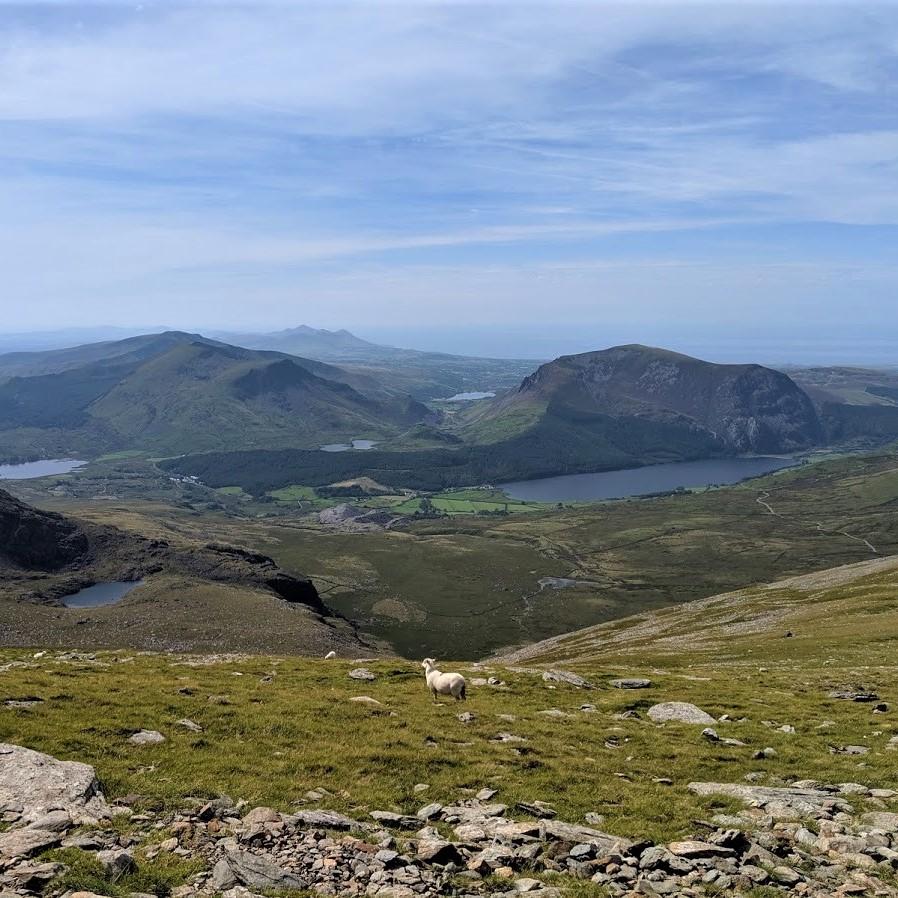- Regular Price
- £19.99
- Sale Price
- £19.99
- Regular Price
- £19.99
- Unit Price
- per

Wool is hitting the headlines for both amazing and wrong reasons at the moment. The highs include global knitting communities supporting fundraisers and sporting events. The lows put into question the sustainability of wool and misinformation around the wool process, resulting in the removal of advertising campaigns by the Advertising Standards Agency.
So we thought we’d take a moment to put the record straight on how sustainable this ancient, eco-friendly fabric is.
There’s a reason that wool has been used since the Stone Age. The very fact of its continued existence proves, we believe, the incredible sustainable properties of wool.
Please also see our updated and more deeply researched blog post on the sustainability of wool. We look forward to your reaction.
For something to be truly sustainable, it must not use too much land or water during its production, it should not have added chemicals like dyes, finishings or coatings, and it must be biodegradable.
The great news is that wool is highly sustainable, renewable, biodegradable, natural, and it can be organic and chemical free.
Many brands struggle to know which materials are best for the environment. Indeed, there are pros and cons to all. Often tools look only at comparing fibres on the basis of production and processing. Consequently, this leaves out what actually happens when the clothes are being used.
Sheep are part of the natural carbon cycle, consuming the organic carbon stored in plants and converting it to wool. Fifty per cent of the weight of wool is pure organic carbon.
Sheep are part of the natural carbon cycle, consuming the organic carbon stored in plants (that humans cannot eat) and converting it to wool.
Half of the weight of wool is pure organic carbon. As sheep consume plants (and the organic carbon within), they convert it into wool. So the plants that convert carbon from the atmosphere are in turn converted into organic compounds that the sheep use to grow wool.
You can buy wool with a clean conscience knowing that your beautiful woollen throw, or cosy sheepskin rug, has in fact removed carbon from the atmosphere. Bonus points!
Sheep are often grazed on rangelands which aren’t suitable for growing crops and are naturally fed by rainwater. This is far more sustainable than cotton, which is grown on land that could have been used for food crops, and has to use irrigated water.
We try to use suppliers that use British wool as often as possible, so that smaller British farms make a decent profit.
All greasy wool - that is, wool that has not yet been washed, brushed or processed, is sent to British Wool, the UK’s wool marketing board. This organisation verifies that animal welfare is maintained at the farms.
For example, we buy the wool for our Chunky Aran knitted throws and blankets from Shepley Mill in Yorkshire which is verified by British Wool.
A sheepskin is a waste product, turned into a luxury. This makes our real sheepskin rugs highly sustainable.
The sheep are reared for meat, and we place our trust in farmers and vets to ensure the animals have been well looked after during their lifetimes.
To minimise further waste, we also use the best quality sheepskin offcuts to create our luxury sheepskin pet beds.
Of course, every product has an impact on the environment. The International Wool Textile Organisation works with everyone in the chain - from farmers to retailers - to ensure that wool is produced sustainably and ethically.
Where once Stella McCartney stood out from the crowd for talking about ethical production of fabrics, her stance is now welcomed as the ‘new normal’.
As a team, we’re utterly obsessed with natural fibres. In fact we like to think we’re sharing our love of ‘The World’s Finest Fibres’ every day. Christmas comes regularly to our office in the form of new samples to try, test and compare before adding to the shop. We’re a particular bunch, not letting anything other than perfection through. We love sending out packages full of products that we know will last for years and bring a lot of pleasure.
Highly durable wool, with its innate water and flame resistant properties, is naturally clever. So it hands down beats technical fabrics that have had these qualities added in chemically or artificially.
As people wake up to the urgent climate crisis, we hope they’ll see a return to natural fabrics as a positive step. That is, to accept that quality clothes and soft furnishings do need looking after, with biodegradable detergents and washed at low temperatures. And if you care for them, they’ll reward you with soft and cosy long service.
So, if you’re searching for an eco-friendly, sustainable, all-natural fabric, you’ve come to the right place. Any questions? Just drop us a line.
0 comments